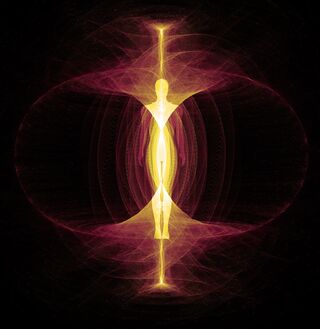When the Beatles came out with a song titled “All You Need Is Love,” or Mahatma Gandhi claimed “where there is love there is life,” no further explanation was needed. These universal moments of understanding unite us all. It’s very hard to find anyone who claims to be philosophically opposed to love. The great religions and spiritual traditions that people use to find their sense of true north generally have love as their central message. Almost everyone agrees on its fundamental importance.
After losing a loved one, or indeed when we are in any way jolted out of the somnambulism of business-as-usual, peoples’ discoveries are very consistent. Time spent accumulating money, chasing fame, or the conventional metrics of success generally seems like a waste of time. However, spending time with loved ones and infusing love into this parched world never conjures regret.
And yet it’s strange, isn’t it, that the very thing that is most important to all of us frequently gets marginalized when we try to understand reality in an organized way. There is plenty written about what's "not love" but not so much about love itself. In this prestigious publication, for example, there have been a few blog posts with "love" in the title in recent years. Almost all of them are about romantic and sexual relationships.
We can also find many articles about anxiety and depression, but not love beyond romance. Search "depression" or "anxiety," and you will find a richer trove of results. In PubMed, "love" as a keyword brings up 1100 articles in the last year, while most of these use the word as a synonym for "like" or "affiliation." The search term "anxiety" returns 28,000 articles, depression yields an impressive 40,000, and "conflict" offers us a bumper crop of 475,500.
Frameworks for understanding love
When we try to better understand love, there are different frameworks within which we can hold it. Some people see love as the byproduct of the speech and actions of one particular species: homo sapiens. When we think of it that way, we can arrive at two conflicting assumptions.
Jean-Jacques Rousseau concluded that love is natural to us, that we are good loving beings, but it gets conditioned out of us through the harsh ways of the world and fear.
Thomas Hobbes‘s conclusion was to say that love is not natural to us at all. We are barbarians and love has to be taught to us by becoming civilized through morality and religion.
The danger inherent in this second conclusion is that when we try to learn to become more loving by modifying our speech and action, we can create a kind of “plastic love,” which may look like the real thing—even give us the attention we are looking for—but it is an imitation. In this way, we may even train artificial intelligence to say and do the right "loving" things, but we will be missing the ineffable magic.
THE BASICS

There is another framework in which to see love, and to which my research has been pointing as most fruitful. Beyond romantic love, we can also hypothesize love as a state of being, which is not so much the byproduct of direct human thought and action but is an underlying generative field.
We find this way of seeing love referenced in almost every ancient tradition, and all the world's religions. When people reach higher states of consciousness through spiritual practice, or dip into such states through psychedelic exploration and other peak experiences, we hear the same message echoed again and again: Love is experienced as an underlying generative field and as the fundamental force which makes up the universe.
Emanating love
As human beings, when we are connected to this unified field, we naturally emanate love. We don't have to do anything or learn anything but simply relax into being love itself. At other times we become disconnected from this generative field and the habits of “not love” take over.
With this understanding of love, which is gaining increasing popularity, it is not necessary to learn to say and do loving things. Instead, you are called to relax into a realization of who you are, what is fundamental to life, and how that can emanate through you.
Relationships Essential Reads
In this way of seeing love, any human being can become attuned to the frequency of love and shine it onto another person. Research from the Heart Math Institute, for example, explores the possibility of two human beings becoming simultaneously attuned to the field of love, which creates a kind of resonance, or feeling of oneness.
What would change for you, if you knew that love is not just a by-product of relational transactions, but fundamental to your being, an infinite field which animates you and gives you life? What if love is who you are? What remains when you abandon any effort or pretense?
This alternative perspective on love could become one of the most pivotal shifts in accelerating healing in medicine and psychology.
https://www.psychologytoday.com/us/blog/heart-healthcare/202208/beyond-romance-the-role-love-in-psychology-and-medicine
2022-08-23 18:31:43Z
Bagikan Berita Ini

















0 Response to "Beyond Romance: The Role of Love in Psychology and Medicine - Psychology Today"
Post a Comment